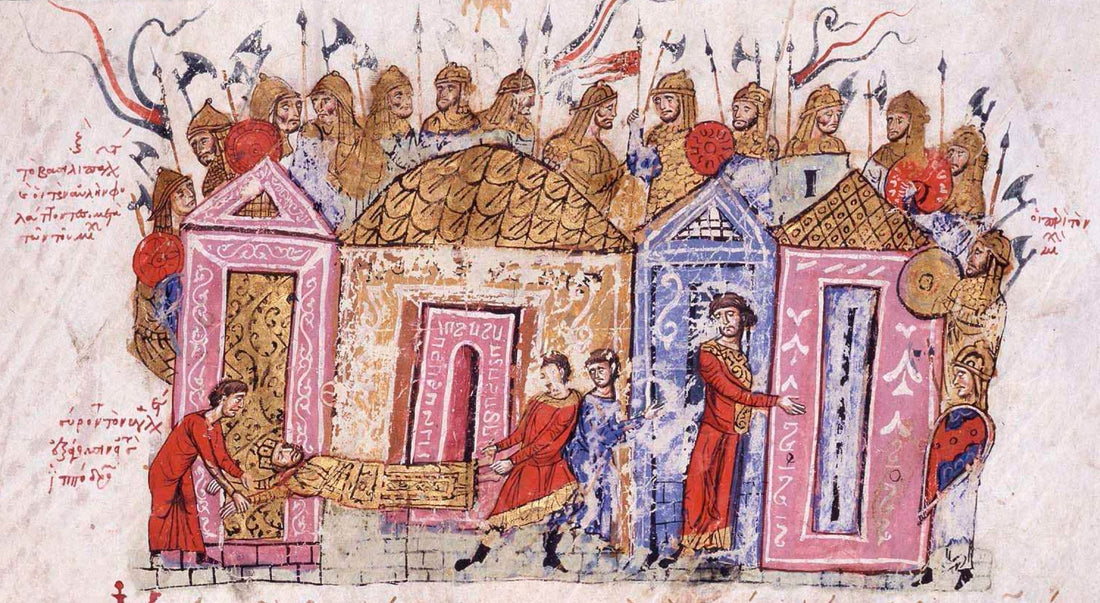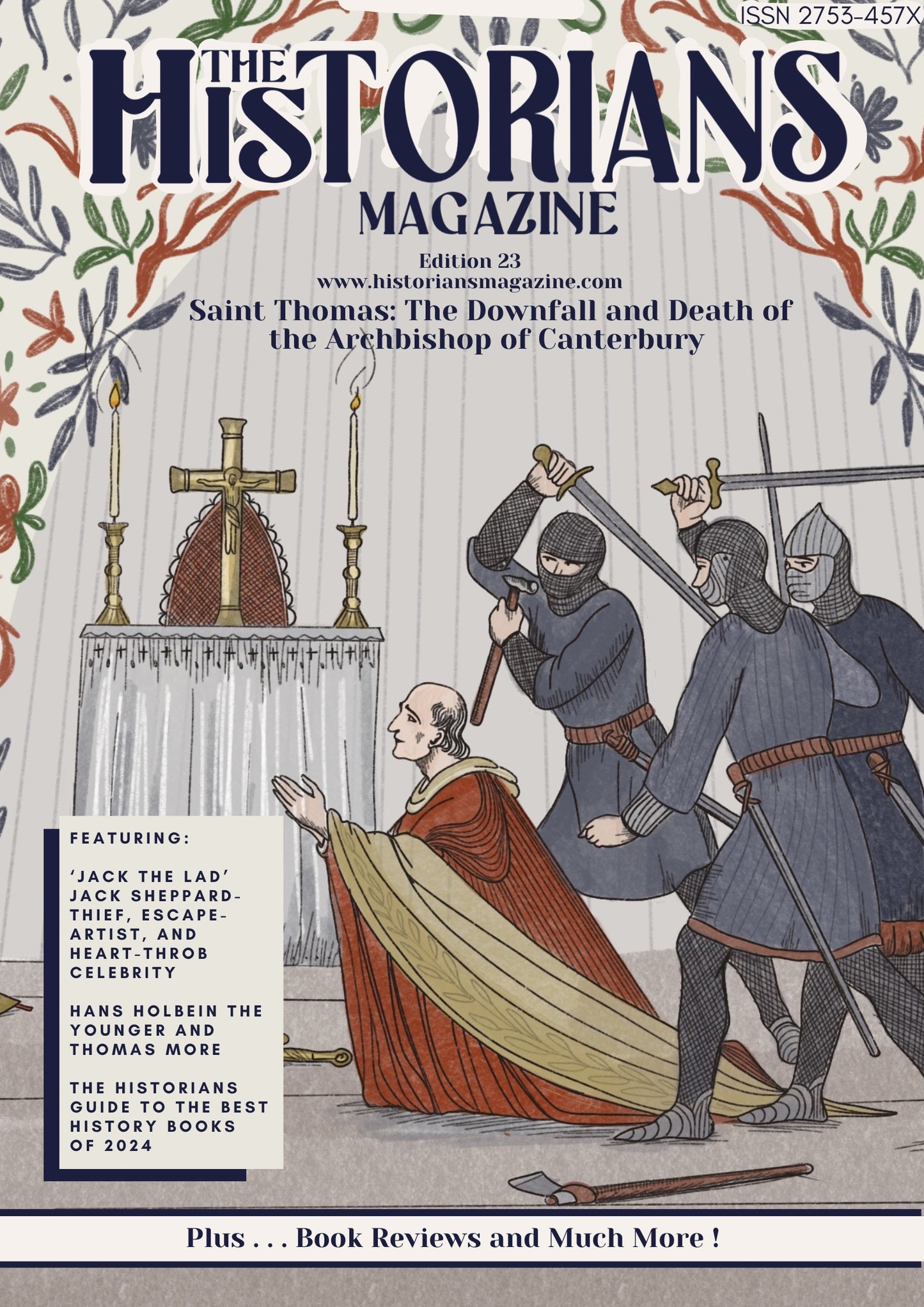
English Abroad: Anglo-Saxon Refugees in the Crimea by Steve Dowen
Share
Játvarðar Saga and The Journey of Sigurðr
One of the things I love most about history is learning about the weird and wonderful ways of the past. Sometimes these can be social and religious beliefs that are alien to us today, or it can be the bizarre things that people used to eat. However, what I am always drawn to is the movement and migration of peoples to places where you’d least expect them.
If someone was to mention English colonies around the world, most would naturally think of the colonies in Virginia and the New World; or perhaps those in India, Hong Kong, or even Australia. What you wouldn’t think of (unless you’re a pub quiz aficionado) would be a colony in Ukraine, 500 years before any English colonists travelled across the Atlantic. This mediaeval ‘New England’ is one instance that has escaped popular imagination and interest.
The evidence for an English colony in Ukraine comes from a variety of sources, and the evidence for its existence is now quite strong. Scholars have primarily focussed on three separate accounts to examine the likelihood of the tale. The first is the Icelandic Saga of Edward the Confessor (Játvarðar Saga) from the 14th century. In it, the saga recounts a migration of a large number of Anglo Saxons out of England following the Norman Conquest in 1066. It was led by an ‘Earl of Gloucester’, a man named Sigurðr, who led 350 ships from England in the 1070s and headed to the Mediterranean via the Straits of Gibraltar.
On their journey the English are said to have raided Cueta and North Africa for a time. However, after hearing that the Byzantines were besieged by a ‘heathen folk’, they sailed to Constantinople and lifted the siege. The heathen folk are thought to have been the Seljuk Turks which were in conflict with the Byzantines during this time period. The Byzantine Emperor (likely Michael VII rather than the oft claimed Alexios I Comnenus) was impressed with the English diaspora, and offered them a position in the Varangian guard (the Emperor’s personal guard). While many accepted, Sigurðr and some others instead asked for land. As is included in the Játvarðar Saga:
"[I]t seemed to earl Sigurd and the other chiefs that it was too small a career to grow old there in that fashion, that they had not a realm to rule over; and they begged the king to give them some towns or cities which they might own and their heirs after them. But the king thought he could not strip other men of their estates. And when they came to talk of this, king Kirjalax [Alexius I Comnenus] tells them that he knew of a land lying north in the sea, which had lain of old under the emperor of Micklegarth [Constantinople], but in after days the heathen had won it and abode in it. And when the Englishmen heard that they took a title from king Kirjalax that that land should be their own and their heirs after them if they could get it won under them from the heathen men free from tax and toll. The king granted them this. After that the Englishmen fared away out of Micklegarth and north into the sea, but some chiefs stayed behind in Micklegarth, and went into service there."
This land was to be located in the Crimean peninsula, and the English migrants quickly conquered many coastal areas, and established towns and cities.
By Roke - Perry-Castañeda Library, Map Collection: From the "Historical Atlas" by William R. Shepherd, New York, Henry Holt and Company, 1923, Public Domain.
The Varangian Guard
The Varangian Guard were the personal guards of the Byzantine Emperors from 988 A.D onwards after their formation by Basil II. Originally, the guards were primarily drawn from Scandinavians from the North and the Kievan Rus. However, from the 1070s onwards, the guard appears to have had a substantial Anglo-Saxon English representation. What is most interesting however, is that this proportion grew over the years, and that they retained a distinct identity, separate from the other peoples of the Empire, despite being strangers in a foreign land. Even in the thirteenth century, the De Officiis of Pseudo-Codinus reported that at Christmas, the Varangians wished the Emperor a long life ‘in their native tongue, that is English’.
The continued presence of a distinct English population within the guard for centuries afterwards also hints that there was a sizeable population of settled English nearby. There are also independent references from the 13th which make claim of a ‘land of the Saxi’. These reports come from the Franciscan Friars who were sent by Pope Innocent IV in 1246-1247 on a mission to the Mongols. These ‘Saxi’ dwelt in fortified cities on the Crimean peninsula and were some of the only Christians in the area. This indicates that these ‘Saxi’ were the Anglo-Saxons who had settled in the area 170 years before.
Additionally, the accounts suggest they were still a capable military force, one which could provide experienced men for the Varangian Guard:
“When we were there we were told that the Tartars besieged a certain city of these Saxi and tried to subdue it. The inhabitants however made engines to match those of the Tartars, all of which they broke, and the Tartars were not able to get near the city to fight owing to these engines and missiles. At last they made an underground passage and bursting forth into the city they tried to set fire to it, while others fought, but the inhabitants posted a group to put out the fire, and the rest fought valiantly with those who had penetrated into the city and, killing many of them and wounding others, they forced them to retire to their own army. The Tartars, realising that they could do nothing against them and that many of their men were dying, withdrew from the city.”
A twelfth-century depiction of the Varangian Guard, from the Madrid Skylitzes: Public Domain.
Settlements and Towns
Finally, there are several accounts of locations with English inspired names on the Crimean peninsula. For example, in the Játvarðar Saga:
“Earl Sigurd and his men came to this land and had many battles there, and got the land won, but drove away all the folk that abode there before. After that they took that land into possession and gave it a name, and called it England [also called Nova Anglia or New England in other accounts]. To the towns that were in the land and to those which they built they gave the names of the towns in England. They called them both London and York, and by the names of other great towns in England. They would not have St. Paul's law, which passes current in Micklegarth, but sought bishops and other clergymen from Hungary. The land lies six days' and nights' sail across the sea in the east and north-east from Micklegarth; and there is the best of land there: and that folk has abode there ever since.”
Additionally, an Italian atlas from 1553 of the area includes names such as Suasco (Sussex), and Londina (London). Both of these locations are referenced in the earlier written accounts with other settlements such as York also being named. There are also several Varangian inspired names such as Varangolimen, Vagropoli, and Varangido agaria.
All of the points mentioned above indicate that there was a sizeable English diaspora who settled in the Crimean region from the 1070s onwards. The migrants maintained their own culture and language in the area for centuries afterwards though the full extent of which is yet to be discovered.
About the Author: Steve Dowen
Amateur historian with a passion for writing and (strangely) researching. Having completed both a BA and an MA in History at the University of Hull, I'm starting to look at writing my own book - with a few blogs dotted in from time to time!


